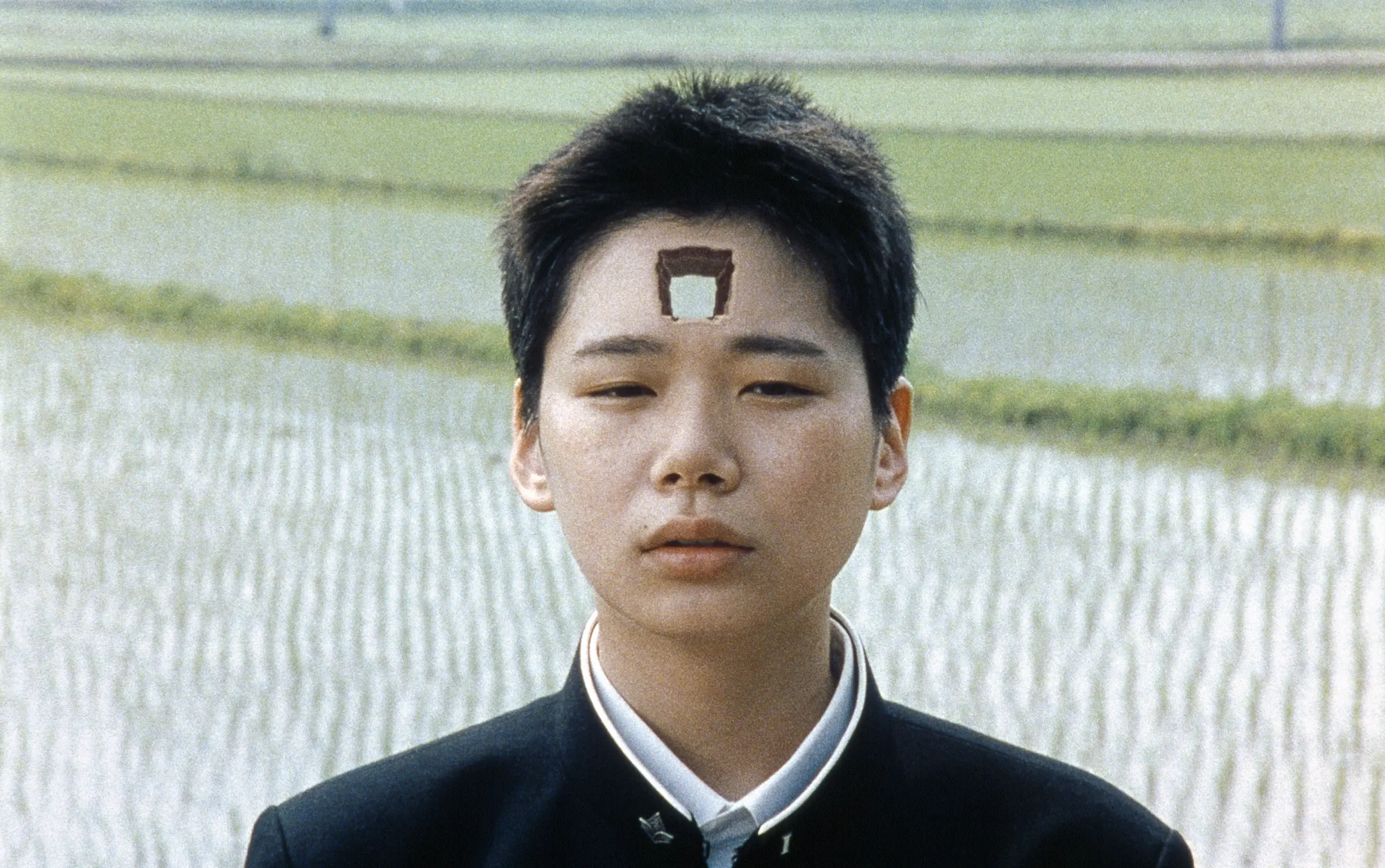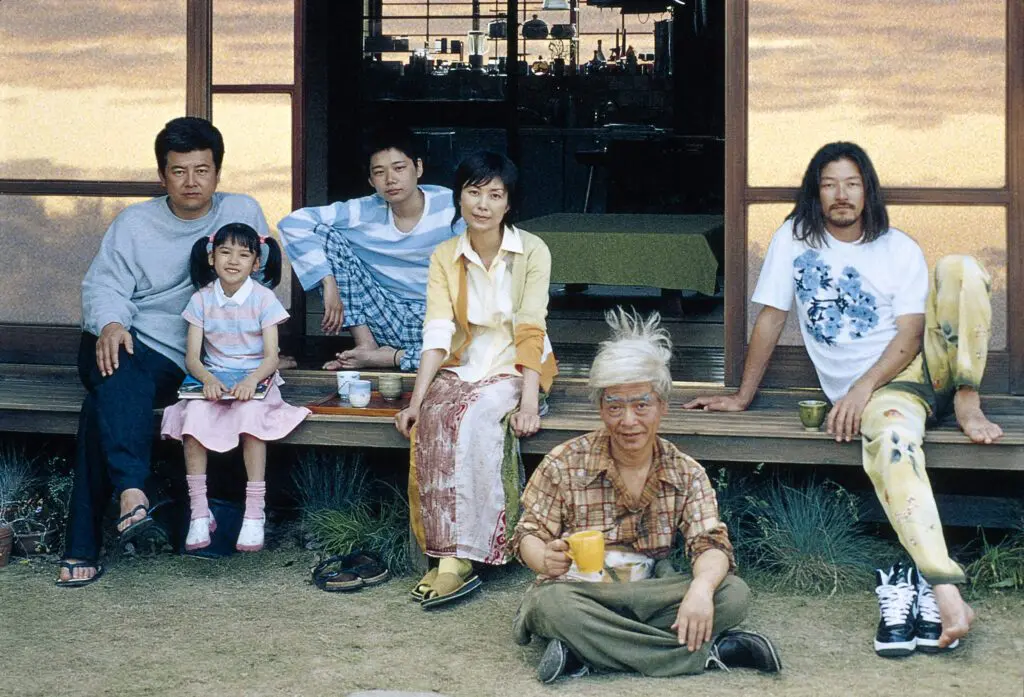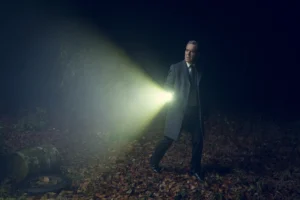Summary
A beautiful piece of escapism, The Taste of Tea follows a family in rural Japan finding themselves and connections with each other.
Sometimes, I look forward to a film for months, and when I watch it, find myself disappointed. Sometimes, I don’t get around to watching something for ages, and when I finally do, I kick myself for leaving it so long. The Taste of Tea, originally called Cha no Aji, falls into the second category. Despite that, though, I think I’m going to struggle to praise it effectively because the subjects are so ordinary.
Written and directed by Katsuhito Ishii, The Taste of Tea presents a period in the shared life of the Haruno family in rural Japan. This family is made up of the mother, Yoshiko (Satomi Tezuka), father, Nobuo (Tomokazu Miura), daughter, Sachiko (Maya Banno), son, Hajime (Takahiro Satô), uncle Ayano (Tadanobu Asano) and grandpa Akira (Tatsuya Gashûin). This is a seemingly everyday family, but each of them has an imagination or artistic vision that influences them greatly, and The Taste of Tea takes the audience inside their minds and inside the connections they all form.
There: I said it wouldn’t sound like anything special. As soon as the opening scene shows us how Hajime feels about the departure of the girl he is smitten with though, we can see that The Taste of Tea really is special; with a simple abstract image, we can see just how bereft he feels, in a way that those around him will never grasp. Both he and Sachiko struggle somewhat with expectations relating to growing up, while Yoshiko’s and Akira’s issue is that of self-expression. None of these issues weigh so heavily that any of the family becomes depressed, mind you — this isn’t a melancholy film. Rather, they are key themes for each person during the period depicted; specifically, themes that grandpa has observed and recorded.

Overall, The Taste of Tea is a peaceful, joyful film. We watch the lifestyle of this family – as individuals and as a whole – and get to understand the impact that art and imagination can have on them, and the impact each has on each other. It’s nearly two and a half hours long, but so laid back and endearing throughout that I don’t mind at all: I would happily have spent a day observing these rich lives. As you may have gathered, there isn’t a plot as such, though the loosely woven threads do come together towards the end in a satisfying and moving way.
Visually speaking, The Taste of Tea is captivating: the beautiful skies and the picturesque location draw the viewer into the Haruno home. As well as the pastoral reality, Ishii also utilizes a number of animation techniques; both in the surreal views of the characters’ minds and also presenting their output, as at least two of the family are artists by nature.
The Taste of Tea was first released via a very successful festival tour in 2004 and has now finally achieved a Blu-ray release in the UK. This includes some entertaining special features, such as a 90-minute “Making Of” documentary and the full version of the “Super Big” animation that is one of the highlights of the film.




